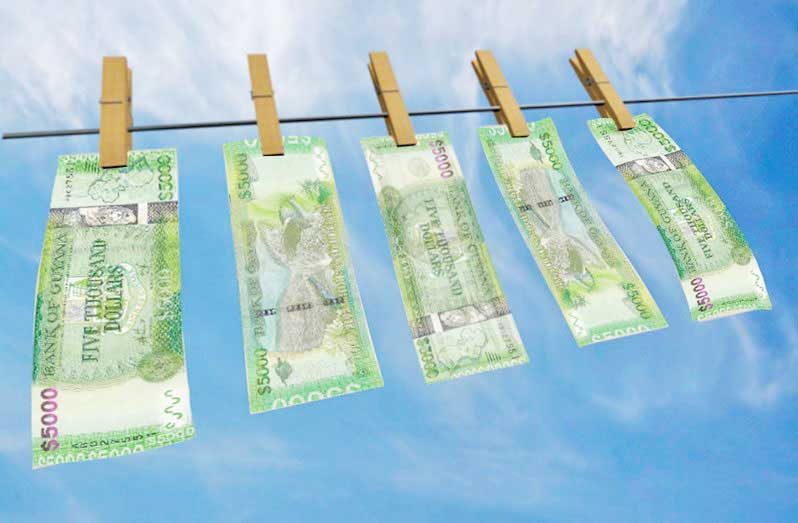AS Guyana emerges as a significant player in the global economy, the nation’s intensive efforts to fortify its financial systems against money laundering and terrorist financing have garnered international attention, as detailed in a recent report by the Caribbean Financial Action Task Force (CFATF).
The evaluation, finalised in May 2024, provides a comprehensive look at the country’s advances in Anti-Money Laundering and Counter-Terrorist Financing (AML/CFT) measures, showcasing significant progress alongside critical areas for improvement.
The CFATF report commends Guyana for its proactive approach in understanding and addressing AML/CFT risks.
The country has undertaken multiple risk assessments across various sectors, including a national money-laundering risk assessment in 2017, updated in 2021, and sector-specific evaluations in 2023.
These assessments have been pivotal in shaping targeted strategies and policies, culminating in the National Policy and Strategy Plan (NPSP) for 2021-2025.
“Guyana has made significant efforts to improve its understanding of AML/CFT risk via the conduct of multiple risk assessments,” the report highlighted.
This strategic approach aims to enhance co-operation among competent authorities, refine the legislative framework, and ensure the transparency of legal entities and arrangements.
VULNERABILITIES AND CHALLENGES
Despite these advancements, the CFATF report identifies critical vulnerabilities: one significant area of concern is the implementation of targeted financial sanctions, particularly in the non-profit organisations (NPO) sector, where the freezing of assets has proven challenging.
The report also stressed the need for more robust measures in the extractive industries, where risk assessments remain incomplete.
The report states that while Guyana has a strong legislative framework, there are shortcomings regarding the NPOs sector, implementation of targeted financial sanctions without delay, and the freezing of assets.
These gaps highlight the need for further strengthening of the country’s AML/CFT infrastructure.
Guyana’s Financial Intelligence Unit (FIU) plays a crucial role in the country’s AML/CFT efforts, with access to comprehensive data, including Suspicious Transaction Reports (STRs) and Threshold Transaction Reports (TTRs).
The report praises the quality of STRs, though it suggests that feedback mechanisms to reporting entities (REs) could be improved.
Investigations into money laundering and terrorist financing are primarily handled by the Special, Organised Crime Unit (SOCU), with support from other law-enforcement bodies.
However, the report notes a lack of coordination by the unit and the Guyana Police Force’s Criminal Investigation Department (GPF-CID) in conducting parallel investigations, underscoring the need for clearer procedural guidelines.
SECTORAL SUPERVISION AND PREVENTIVE MEASURES
The CFATF report found that supervision of financial institutions (FIs) and designated non-financial businesses and professions (DNFBPs) varies in effectiveness.
While banks and insurance providers generally exhibit a strong understanding of AML/CFT obligations, other entities such as credit unions and specific DNFBPs are still developing adequate risk-based measures.
The report indicates that supervision for attorneys-at-law, notaries, and accountants is in the nascent stages, with recent legislation such as the Compliance Commission Act and the Real Estate Agents and Brokers Act, 2023, aiming to close these gaps.
“AML/CFT supervision for some DNFBP sectors will intensify with the institution of the GCC,” the report noted, suggesting potential improvements in oversight and regulation.
Among other things, Guyana’s legal framework supports strong international cooperation, facilitated by key legislations, such as the Mutual Assistance in Criminal Matters Act and the AML/CFT Act.
The CFATF report acknowledges Guyana’s commitment to mutual legal assistance and extradition, although it also calls for enhancements in the case-management system and resource allocation to improve the timeliness and quality of co-operation.
To address these challenges, the CFATF outlines several priority actions for Guyana, including strengthening coordination among law-enforcement agencies, enhancing risk-based supervision, and addressing technical deficiencies related to targeted financial sanctions and beneficial ownership information.
The CFATF noted that these steps are crucial as Guyana continues to develop its oil and gas sector, which significantly contributes to its economic growth.
Currently, there are nearly 200 money-laundering cases pending before the courts, highlighting the country’s ongoing battle against financial crimes.
Over the past year, law-enforcement agencies have ramped up their efforts to combat financial crimes, leading to a significant number of arrests and charges.
Guyana had approved a National Policy and Strategy for Combating Money Laundering, Terrorism Financing, which addresses the risks identified in its 2021 National Risk Assessment and introduced in parliament legislative amendments to the AML/CFT Act.
Attorney General and Minister of Legal Affairs, Anil Nandlall, S.C., had said that Guyana must move in this direction given the profound shifts in the global landscape.
“We live in a radically different world now. And in a world where there are global regulators of important activities; crime and security are foremost considerations on the global stage,” Nandlall had said.
Over the years, the National Assembly has passed comprehensive legislative changes, including the AML/CFT Amendment Bill, the Real Estate Agents and Brokerage Bill, a National Compliance Bill and the Fugitive Offenders (Amendment) Bill.



.jpg)








